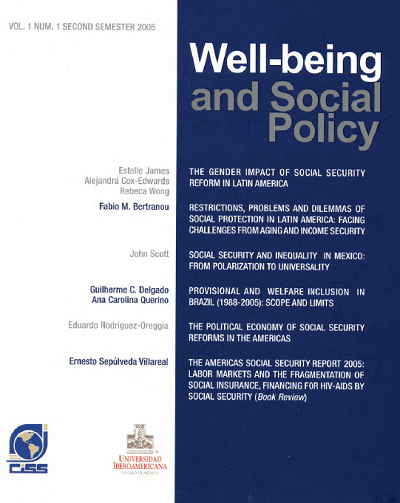
This paper analyses the influence of new rights derived from the Social Security System in Brazil after the Federal Constitution (1988). At least, three different and independent forces determinate the arrangements in social security policies: 1) the new social rights created by constitutional rules in response to social pressure; 2) the decrease of employment and wages in salaried jobs imposed by business cycle; 3) the trend on demographic transition and its direct, but modest influence in the system. In spite of ideological differences, there is a consensus that social security financing depends on an increase of at least 4% per year in GDP.
